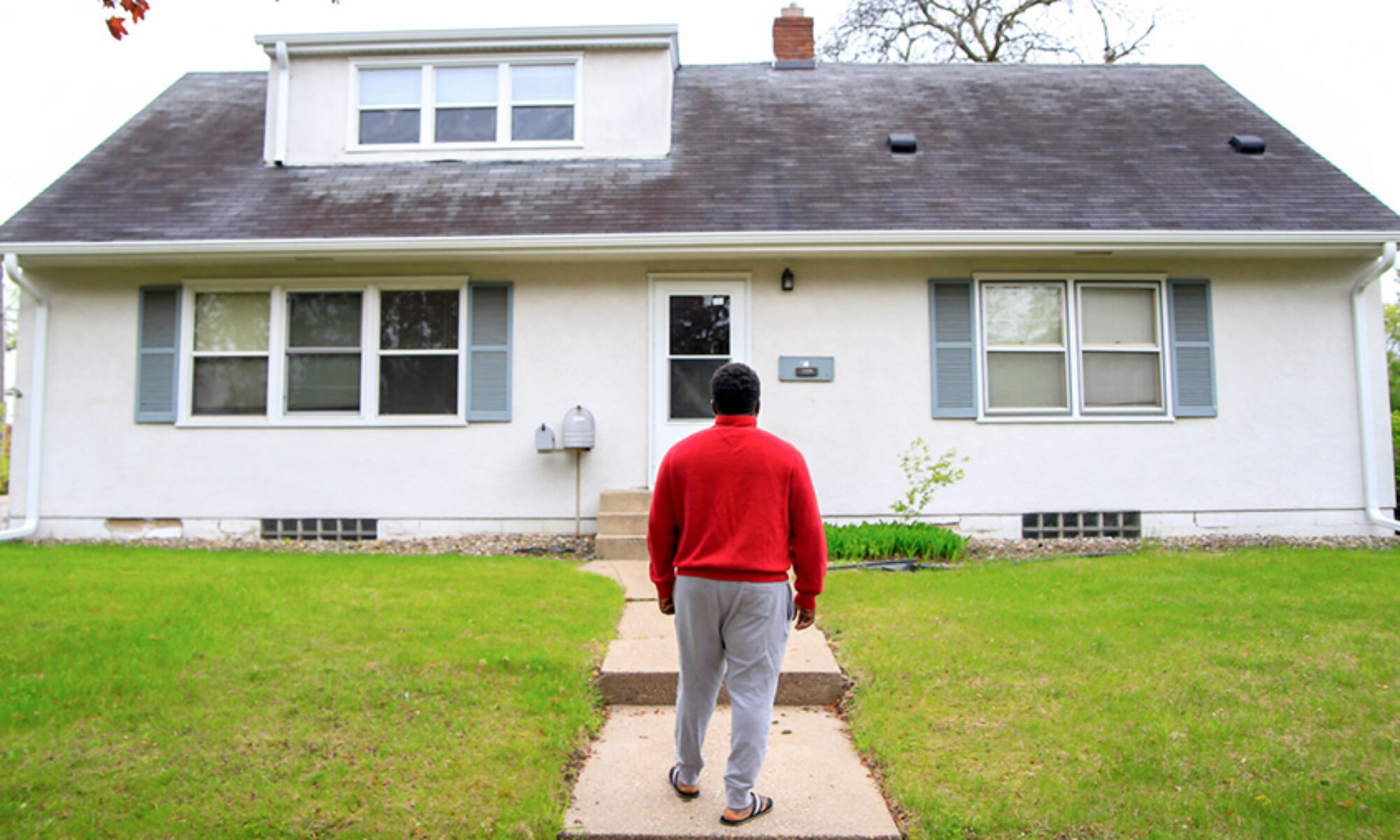
© Joanna Schaus Photography www.joanna-schaus.com
A.A. learned to clean the house at the age of five. At age six, her mother taught her to cook bidena (a type of bread) and sauce. “In our country a girl gets married at an early age,” she explains, “so we learn housekeeping as children.”
“I wouldn’t go out and play. I preferred to be in the house cooking.” A.A. smiles at the memory. “My mother and neighbors blessed me when they saw that I worked like that.”
A.A. remembers with particular fondness cooking a special meal for Eid, the day after Arafah, a Muslim celebration to commemorate the Hajj. “It was like a test,” she says, “You had to cook bidena, chicken, sauce, and kineto.” She worked beside her mother to produce a feast that sustained more than her family. “Our neighbors were invited,” she shares, “and the poor would be fed.”
As A.A.’s story reflects, food is more than a basic human need; it expresses culture, community, history, and personality. For someone who is seeking asylum, having consistent access to nutritious and culturally-appropriate food is an important step in recovering both physical and mental health in the midst of forced displacement.

However, many asylum seekers in the US find themselves in a situation where basic survival, including food security, is at risk. Without access to government assistance and barred from legal employment for an extended period of time, asylum-seeking individuals must rely on others to meet their basic needs. This can result in inadequate or inconsistent access to nutritious food, culturally-inappropriate food, or disempowering dynamics between the individual and those she must rely on for assistance. This was the case for A.A.:
“Before I came to Jonathan House, I was living with another family from my ethnic community. They gave me food, but it wasn’t always well prepared, and they would give me a begrudging look when they gave it to me. My social worker offered me food from their center’s pantry, but when I took it home, my hosts told me, ‘We don’t need outside food’ and put it in the trash. After that, I would keep food in my purse and eat it at night after other people had gone to bed.”
The dependency and isolation of her situation became a psychological burden to A.A. “They would tell me, ‘You need to leave our house,’ and I would just cry, because I didn’t have anywhere to go. What life was like before I came to Jonathan House, I felt like it wasn’t much different than what I suffered in my home country. It even got to the point where I wanted to put myself in front of a car.”
Thankfully, A.A. shared her struggles with a friend, and he counseled her to stay hopeful. Soon after, her social worker told her about a new house opening for asylum-seeking women. “She told me, ‘Wait, because maybe they will have a place for you.’” A.A. became the first resident at Jonathan House’s site for women and children after its launch in March 2019.

The day after her arrival, church partners helped welcome her with groceries and a special griddle for cooking bidena, the bread her mother taught her to make as a child. “I cooked and enjoyed my meal in freedom,” she says.
Monthly food assistance provided through the generosity of partners like you now allows A.A. to purchase her own food at a neighborhood ethnic market owned by her friend. “I’m able to go to the store and buy everything that I need. At Jonathan House, I’m able to live, eat, sleep, and go in and out in peace.” A.A. has also put a lot of care into tending a small garden at Jonathan House, where she’s planted peppers and tea plants she knows from her home country.

When asked what she desires for the future, A.A. expresses a hope to be granted asylum and work authorization soon. “Being reunited with my kids must also be part of my journey,” she adds firmly. ”I eat good food now, I sleep good sleep, but my kids are scattered all over the place.” Her children, still in a place of active conflict, face their own serious problems of food insecurity.
As she waits for this longed-for reunification with her children, she continues to bless, love, and welcome others at Jonathan House with her gardening, her cooking, and her friendship. “I don’t have any relatives nearby except God and Jonathan House,” A.A. says, “I am a woman who didn’t have a home or relatives. You made that woman settled, made her safe.”
Thank you for helping our asylum-seeking neighbors access healthy, culturally-appropriate food as they recover from forced displacement. Your support of Jonathan House residents has a life-changing impact.


